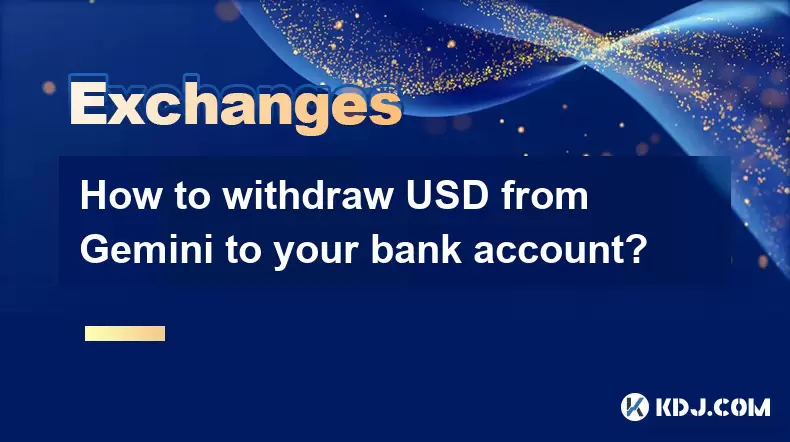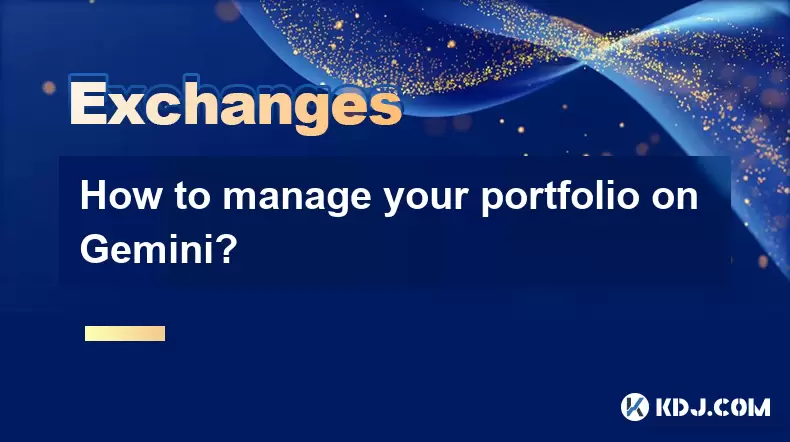-
 Bitcoin
Bitcoin $114400
0.68% -
 Ethereum
Ethereum $3550
2.48% -
 XRP
XRP $3.001
4.99% -
 Tether USDt
Tether USDt $0.9999
0.01% -
 BNB
BNB $757.6
1.46% -
 Solana
Solana $162.9
1.07% -
 USDC
USDC $0.9998
0.00% -
 TRON
TRON $0.3294
0.91% -
 Dogecoin
Dogecoin $0.2015
2.46% -
 Cardano
Cardano $0.7379
2.01% -
 Stellar
Stellar $0.4141
8.83% -
 Hyperliquid
Hyperliquid $37.83
-1.91% -
 Sui
Sui $3.454
0.76% -
 Chainlink
Chainlink $16.62
3.53% -
 Bitcoin Cash
Bitcoin Cash $554.6
2.84% -
 Hedera
Hedera $0.2486
3.91% -
 Ethena USDe
Ethena USDe $1.001
0.00% -
 Avalanche
Avalanche $21.95
3.34% -
 Toncoin
Toncoin $3.563
-2.85% -
 Litecoin
Litecoin $112.7
2.65% -
 UNUS SED LEO
UNUS SED LEO $8.977
0.13% -
 Shiba Inu
Shiba Inu $0.00001232
1.85% -
 Uniswap
Uniswap $9.319
2.93% -
 Polkadot
Polkadot $3.632
1.38% -
 Monero
Monero $307.2
2.36% -
 Dai
Dai $0.9997
-0.03% -
 Bitget Token
Bitget Token $4.340
0.91% -
 Pepe
Pepe $0.00001048
1.07% -
 Cronos
Cronos $0.1348
3.26% -
 Aave
Aave $261.5
1.93%
Is Coinbase a good platform for day trading?
Coinbase offers a secure, user-friendly platform with strong liquidity and advanced tools on Coinbase Pro, making it suitable for day traders focused on major cryptocurrencies.
Jul 07, 2025 at 02:49 am

What is Coinbase and Who Uses It?
Coinbase is one of the most recognized cryptocurrency exchanges globally, especially in the United States. Initially launched in 2012, it has grown to become a go-to platform for both beginners and experienced traders. The platform offers a user-friendly interface, secure wallet services, and compliance with regulatory standards. Its primary audience includes retail investors, institutional traders, and developers interested in blockchain technology.
For day traders, the question becomes whether this platform supports the high-frequency trading strategies they rely on. While Coinbase provides access to major cryptocurrencies like Bitcoin, Ethereum, and Litecoin, its features must be evaluated against those typically required by active traders.
Trading Features Relevant to Day Traders
Day traders require specific tools and functionalities such as low-latency order execution, advanced charting tools, real-time market data, and margin trading capabilities. Coinbase does not offer native margin or leverage options, which are crucial for many day trading strategies. However, its Pro version—Coinbase Pro—offers more advanced trading tools including limit orders, stop-loss functionality, and API access.
Coinbase Pro also features lower fees compared to the standard Coinbase app, which can significantly impact profitability for frequent traders. Additionally, the platform supports a wide range of order types, including market, limit, and stop orders, all essential for executing precise trades.
Liquidity and Market Depth
Liquidity plays a vital role in day trading because it affects how quickly you can enter or exit a position without causing significant price slippage. Coinbase maintains strong liquidity for major cryptocurrencies due to its large user base and consistent trading volume. This ensures that even during volatile market conditions, users can execute trades at desired prices.
Market depth visualization is available on Coinbase Pro, allowing traders to see the current bid-ask spread and gauge potential slippage before placing an order. For traders who depend on fast execution and minimal price movement, this feature is highly beneficial.
However, some alternative platforms may offer deeper liquidity pools or faster execution speeds, particularly for less popular altcoins. Therefore, if your day trading strategy involves niche assets, Coinbase might not always be the best option.
Fees Structure and Its Impact on Profits
Fees are a critical factor for any trader, especially day traders who make multiple transactions daily. Coinbase uses a tiered fee structure based on trading volume, with makers (those placing limit orders) often receiving rebates while takers (market order users) pay slightly higher fees.
On Coinbase Pro, fees start at 0.5% for both makers and takers but can drop as low as 0.1% for high-volume traders. Compared to other exchanges, these rates are competitive but not necessarily the lowest. Some platforms offer maker rebates or zero-fee trading for certain assets, which could be advantageous depending on your trading style.
Additionally, deposit and withdrawal fees vary depending on the method used, so it's important to factor these into your overall cost analysis when using Coinbase for frequent trading activities.
Security and Regulatory Compliance
Security is another key consideration for day traders who keep funds on exchange platforms rather than cold storage. Coinbase is known for its robust security measures, including two-factor authentication, biometric login options, and offline cold storage for most user funds. These protections reduce the risk of hacking and unauthorized access.
Furthermore, Coinbase operates under U.S. regulatory frameworks, including compliance with Know Your Customer (KYC) and Anti-Money Laundering (AML) laws. While some traders may find the verification process cumbersome, this adherence to regulation enhances trust and stability, especially in uncertain market environments.
Technical Tools and Mobile Accessibility
For day traders, having reliable access to real-time data and technical indicators is essential. The Coinbase mobile app allows users to monitor positions, set alerts, and place trades on the go. While it lacks some of the advanced analytical tools found on dedicated trading platforms, it integrates seamlessly with third-party apps like TradingView.
Coinbase Pro offers API access, enabling automated trading strategies and integration with external charting software. Traders can use WebSocket APIs for real-time updates and REST APIs for historical data retrieval. To connect your account to third-party tools:
- Generate API keys from your Coinbase Pro settings.
- Assign appropriate permissions (e.g., view, trade).
- Input the keys into your preferred trading application or bot.
This level of customization gives day traders flexibility in managing their strategies beyond what the native interface provides.
Frequently Asked Questions
Q: Does Coinbase support futures trading for day traders?
No, Coinbase does not currently offer cryptocurrency futures contracts. If you're looking for leveraged futures products, you'll need to use a different exchange that specializes in derivatives trading.
Q: Can I use bots on Coinbase for automated trading?
Yes, you can integrate third-party bots via Coinbase Pro’s API. Popular platforms like Gunbot and Hummingbot allow algorithmic trading strategies using Coinbase as a data source and execution venue.
Q: Are there restrictions on how frequently I can trade on Coinbase?
There are no explicit limits on the number of trades per day, but high-frequency traders should be aware of rate limits imposed on API usage. These restrictions can affect how frequently bots or scripts can send requests.
Q: How does Coinbase compare to Binance for day trading?
Binance generally offers more trading pairs, lower fees, and additional tools like margin trading and futures, making it more suitable for aggressive day traders. However, Coinbase excels in regulatory compliance and ease of use, which may be more appealing for U.S.-based traders seeking a secure environment.
Disclaimer:info@kdj.com
The information provided is not trading advice. kdj.com does not assume any responsibility for any investments made based on the information provided in this article. Cryptocurrencies are highly volatile and it is highly recommended that you invest with caution after thorough research!
If you believe that the content used on this website infringes your copyright, please contact us immediately (info@kdj.com) and we will delete it promptly.
- Cryptocurrency, Altcoins, and Profit Potential: Navigating the Wild West
- 2025-08-04 14:50:11
- Blue Gold & Crypto: Investing Disruption in Precious Metals
- 2025-08-04 14:30:11
- Japan, Metaplanet, and Bitcoin Acquisition: A New Era of Corporate Treasury?
- 2025-08-04 14:30:11
- Coinbase's Buy Rating & Bitcoin's Bold Future: A Canaccord Genuity Perspective
- 2025-08-04 14:50:11
- Coinbase's Buy Rating Maintained by Rosenblatt Securities: A Deep Dive
- 2025-08-04 14:55:11
- Cryptos, Strategic Choices, High Returns: Navigating the Meme Coin Mania
- 2025-08-04 14:55:11
Related knowledge

How to set and manage alerts on the Gemini app?
Aug 03,2025 at 11:00am
Understanding the Gemini App Alert SystemThe Gemini app offers users a powerful way to stay informed about their cryptocurrency holdings, price moveme...

How to use the Gemini mobile app to trade on the go?
Aug 04,2025 at 09:14am
Setting Up the Gemini Mobile AppTo begin trading on the go using the Gemini mobile app, the first step is installing the application on your smartphon...

What to do if you forgot your Gemini password?
Aug 04,2025 at 03:42am
Understanding the Role of Passwords in Gemini AccountsWhen using Gemini, a regulated cryptocurrency exchange platform, your password serves as one of ...

What are the websocket feeds available from the Gemini API?
Aug 03,2025 at 07:43pm
Overview of Gemini WebSocket FeedsThe Gemini API provides real-time market data through its WebSocket feeds, enabling developers and traders to receiv...

How to withdraw USD from Gemini to your bank account?
Aug 04,2025 at 11:01am
Understanding Gemini and USD WithdrawalsGemini is a regulated cryptocurrency exchange platform that allows users to buy, sell, trade, and store digita...

How to manage your portfolio on Gemini?
Aug 03,2025 at 10:36am
Accessing Your Gemini Portfolio DashboardTo begin managing your portfolio on Gemini, you must first log in to your account through the official websit...

How to set and manage alerts on the Gemini app?
Aug 03,2025 at 11:00am
Understanding the Gemini App Alert SystemThe Gemini app offers users a powerful way to stay informed about their cryptocurrency holdings, price moveme...

How to use the Gemini mobile app to trade on the go?
Aug 04,2025 at 09:14am
Setting Up the Gemini Mobile AppTo begin trading on the go using the Gemini mobile app, the first step is installing the application on your smartphon...

What to do if you forgot your Gemini password?
Aug 04,2025 at 03:42am
Understanding the Role of Passwords in Gemini AccountsWhen using Gemini, a regulated cryptocurrency exchange platform, your password serves as one of ...

What are the websocket feeds available from the Gemini API?
Aug 03,2025 at 07:43pm
Overview of Gemini WebSocket FeedsThe Gemini API provides real-time market data through its WebSocket feeds, enabling developers and traders to receiv...

How to withdraw USD from Gemini to your bank account?
Aug 04,2025 at 11:01am
Understanding Gemini and USD WithdrawalsGemini is a regulated cryptocurrency exchange platform that allows users to buy, sell, trade, and store digita...

How to manage your portfolio on Gemini?
Aug 03,2025 at 10:36am
Accessing Your Gemini Portfolio DashboardTo begin managing your portfolio on Gemini, you must first log in to your account through the official websit...
See all articles

























































































